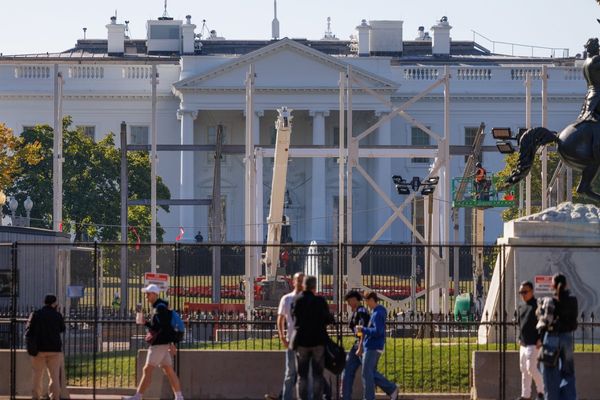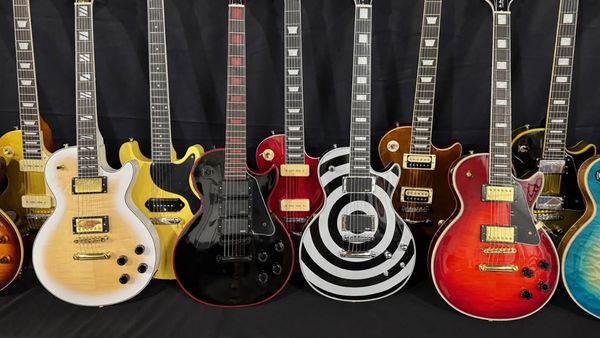WASHINGTON _ California helped birth the nation's electric vehicle industry. It used its laws and market size to prompt automakers to make and sell electric vehicles. It encouraged Tesla and other innovators to build manufacturing plants.
Over the years, California spawned an entire industry devoted to EV batteries, charging stations and utility collaborations, with billions of dollars invested.
Now, all of that is at risk. On Thursday, the Trump administration proposed freezing Obama-era rules that require automakers to build cleaner, more fuel-efficient cars, including hybrids and electric vehicles. The proposal would also challenge California's authority to set its own greenhouse gas restrictions on cars, including a mandate that automakers sell a certain number of electric cars in California.
If the administration prevails, it could upend numerous California enterprises devoted to clean cars, some of whom are already reeling from market uncertainty.
On Thursday, the CEO of the nation's largest EV charging network blasted the Trump administration decision, saying it will "turn back the clock" both on pollution reduction and U.S. competitiveness in electric vehicles.
"California is the global leader in the mobility revolution, due in no small part to the state's commitment to emissions reductions," said Pasquale Romano, CEO of ChargePoint, headquartered in Campbell, Calif. "It simply makes no sense to revoke this waiver at a time when California leads the nation's efforts to compete in the global marketplace."
Altogether, nearly 15,000 people in California are employed by companies involved with fuel-efficient or zero emission vehicles, out of 288,000 nationwide, according to a report last year by the Bluegreen Alliance Foundation, an environmental research group.
But U.S. employment in the sector has dropped the last year, in part because of competition from China and uncertainties about federal fuel-economy standards, said Bob Keefe, executive director of Environmental Entrepreneurs, a group that represents clean tech businesses.
The administration's rollback of auto fuel efficiency standards won't help those employment trends, and likely will hurt, he said.
"This puts thousands of jobs at risk," Keefe said. "There's also going to be a loss of savings to consumers every time they go to the pump with less-efficient vehicles. Lastly, this hurts American innovation _ our ability to compete with China and other countries."
Industry groups praised the administration's rollback. These included groups that oppose federal action to counter climate change, as well as auto industry coalitions, which were more muted in their response.
"Automakers support continued improvements in fuel economy and flexibilities ... while balancing priorities like affordability, safety, jobs, and the environment," said a joint statement from the Auto Alliance and Global Automakers, which represent major corporations such as General Motors, Ford, Fiat Chrysler and Toyota.
California's zero-emissions mandate started in the 1990s, part of an effort to encourage cleaner cars to reduce urban smog. The state requires automakers to market a certain number of electric cars in California, or buy credits from companies that make and market such cars, such as Tesla and Nissan.
Since the Clean Air Act was passed in 1970, California has been legally authorized to set air pollution mandates stronger than those of the federal government. Along with strengthening the Zero Emissions Vehicle program in 2012, California received a waiver from the EPA in 2009 that allowed it to limit greenhouse gases from vehicle fleets.
That waiver led the Obama administration to enact stronger national fuel efficiency standards in 2012, part of a broader strategy of reducing the U.S. emissions that contribute to global climate change.
Yet even before he took office, President Donald Trump signaled he'd roll back the national fuel economy standards.
In a call with reporters, EPA and DOT officials argued the looser standards would reduce the cost of vehicles and encourage consumers to buy new models, which would be cleaner and safer than their old ones. It would still require automakers to produce fleets that average 37 miles per gallon by 2020. "That's a pretty darn aggressive standard," said EPA assistant administrator Bill Wehrum.
But the Trump proposal would freeze those standards in 2020, far less aggressive than President Barack Obama's target, which called for car makers to achieve an average of 54 mpg fuel economy by 2025.
"This (Trump) proposal guts the most effective policy to address climate change in the US," said Don Anair, deputy director of the clean cars program for the Union of Concerned Scientists, an environmental group.
Adair said he was especially disappointed that General Motors, a major manufacturer of electric vehicles in California and elsewhere, endorsed the Trump plan.
"Automakers who claim they support action to reduce greenhouse gas emissions cannot stand up and not reject this proposal outright," he said. "Otherwise, they have no credibility."
In part because of its size and Zero-Emissions Vehicle program, California now is home to 400,000 electric vehicles _ more than any other state. It accounts for about half of all electric cars nationwide, and also has seen significant investment from companies building auto-charging stations, including ChargePoint, which has 30,000 charging stations in California, about 60 percent of its U.S. total.
Tesla is a major player in the industry, both in selling cars and credits to auto makers who don't want to sell EVs. If California were forced to end its Zero Emissions Vehicle mandate, the company could benefit because it would have fewer competitors, said Sam Abuelsamid, senior energy analyst for Navigant Research in Detroit.
On the flip side, Telsa would no longer be able to sell ZEV credits to other companies that aren't hitting their sales targets, he added. "And that's been an important source of revenue for them over the years."
Abuelsamid suspects that companies such as Nissan and GM will continue selling electric vehicles in California, but others may opt out, especially those who've been subsidizing the cost of such vehicles to make them attractive on the California market.
Not all California business involved in vehicle fuel efficiency will be affected by the Trump standards. In Auburn, Ca., a company called Intermotive helps commercial fleets reduce their gas consumption with products that, for example, automatically reduce the time an ambulance or bus engine is idling.
None of Intermotive's products are aimed at companies needing to comply with the Obama-era fuel economy standards, said president Greg Schafer. Instead, he said, customers are looking for easy fuel dollars to save. "Our products have to demonstrate savings, in a certain payback period," he said.
Although California has jump-started the electric car business, recent customers have tended to be wealthy motorists in the Bay Area and Los Angeles, according to a report this year by the International Council on Clean Transporation. "Major cities such as Bakersfield, Riverside, and Sacramento have electric vehicle shares below the state average," the report said.
Motorists buying electric cars have been helped by a $7,500 federal tax credit, but that too has been controversial. Trump and the Republican-led House last year attempted to kill the tax credit, but it ultimately ended up in the tax bill Trump signed.
As McClatchy reported last week, Trump's attempt to revoke California's clean car regulations will surely prompt an epic legal battle that the U.S. Supreme Court could ultimately decide. But first, the administration must seek public comment on its proposals, before making a final decision either late this year, or at the start of 2019.







